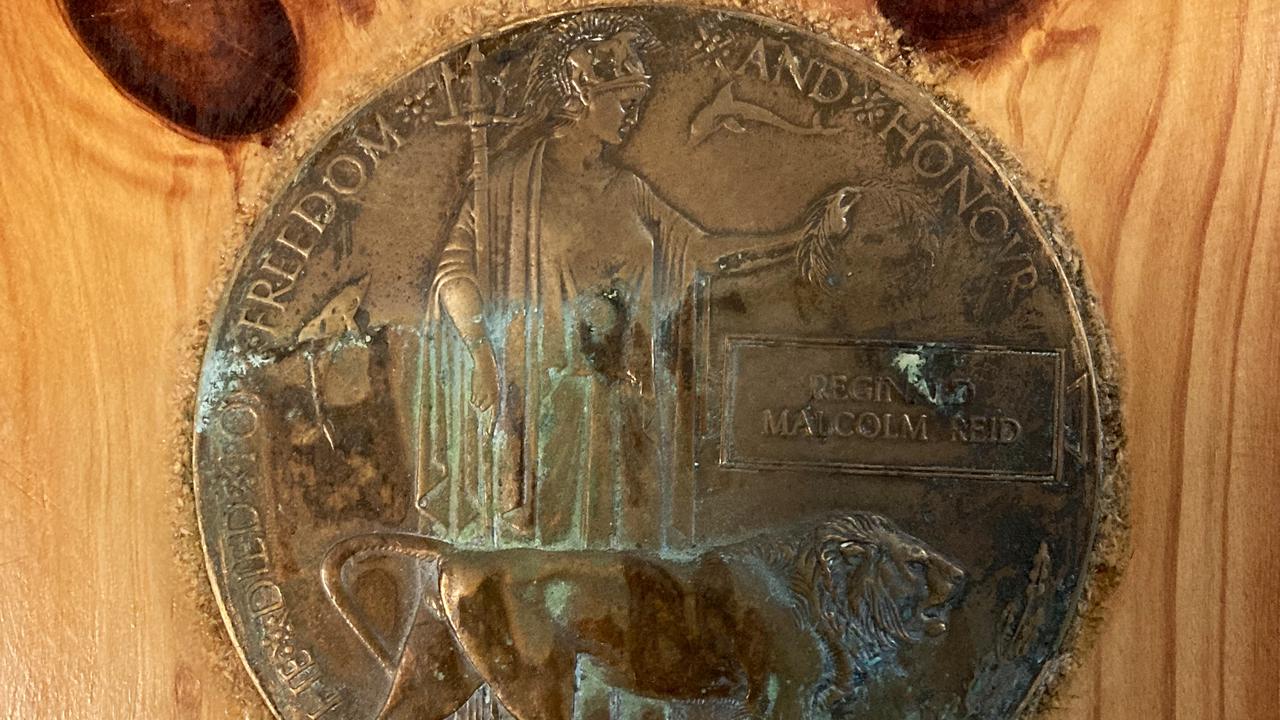Digger Arthur Leggett’s Ode: I’ll just hang around for another year
Now 102 years old, Arthur Leggett can still recall his experiences during World War II in a way that is remarkable both in detail and enthusiasm.

Arthur Leggett, a 102-year-old World War II veteran and former prisoner of war, was supposed to be reciting the Ode at an Anzac Day ceremony before Saturday night’s AFL clash between Fremantle and North Melbourne — a moment he said would rank among one of the greatest highlights of his life.
Instead, Mr Leggett will be joining two million other West Australians in a snap three-day lockdown. The footy will go ahead, but the grandstands will remain empty. While he was disappointed to learn of the news on Friday afternoon, he approached the lockdown with his signature optimism.
“Oh well, I’ll just have to hang around for another year,” he said.
The Dockers were also due to record a video of Mr Leggett reciting the Ode at his home late on Friday.
Given Mr Leggett’s incredible story of survival and endurance during World War II, it is understandable that a pandemic isn’t causing him too much worry.
In an interview with The Weekend Australian in the lead-up to Anzac Day, he could still recall his experiences during the war in a way that is remarkable both in detail and enthusiasm.
Born a month after the end of the First World War, he was the son of a veteran who had survived being gassed in the trenches of France.
Mr Leggett signed up to fight in WWII out of a sense of patriotic duty, having been brought up in an education system that stressed the importance of the motherland and empire.
But his father knew more about what to expect.
“When I finally left home to go overseas, my dad went back inside and said, ‘poor little bugger, he doesn’t know what he’s led himself in for’,” he said.
“They were right, all right.”
Mr Leggett spent the first few months of the war fighting in Libya against the Italians, before being sent to defend Greece and Crete against the Germans. The Australian soldiers’ equipment was rudimentary — much of it was left over from WWI — and limited to what they could carry on their backs.
Having been systematically starved and beaten after being captured in the Battle of Crete, Mr Leggett and hundreds of other imprisoned soldiers, many suffering dysentery, were stuffed into wagons with little food and no toilets for a week as they made their way into Germany.
When it finally came time to jump out of the wagon, Mr Leggett’s legs crumpled beneath him. As he lay there, face-to-face with a German soldier’s snarling Alsatian, Mr Leggett started to lose hope.
It was then, however, that a moment of mateship occurred amid that uncertainty that, more than 70 years later, still stands out in his mind.
“A couple of my mates just picked me up and put my arms around their necks, and the three of us walked into the POW camp,” Mr Leggett said.
“I wasn’t the only one. There was quite a few like me. There were several hundred of us.”
After that hellish train ride into Germany, life as a prisoner was, at least for Mr Leggett, not all misery.
The Germans, he said, respected the Geneva Convention on the treatment of POWs and Red Cross deliveries and kept a steady supply of clothing and food.
His 18 months as a prisoner in Munich in particular are remembered with fondness.
“I’ll stand up anywhere and say some of the nicest people I ever met in my life were the Germans in Munich. The men we worked for treated you an equal,” he said.
The Bombing of Munich prompted Mr Leggett and his fellow POWs to be moved to Poland, where he spent the next few years working in the coal mines.
Eventually, he came to realise as the Allied air raids grew that the tide of the war was turning.
“These great big Flying Fortresses, they’d stretch from one horizon to the other,” he said.
“You realise then we’re getting on top. All you’ve got to do now is stay alive.”
From Poland, Mr Leggett and his fellow prisoners were marched back into Germany.
“At the end of 800 kilometres, you weren’t POWs and guards, you were a conglomeration of humanity just trying to exist,” he said.
After finally being freed and flown back to the UK, Mr Leggett found out about a dance taking place in a nearby town.
He can still vividly recall the feeling of walking into a room and meeting English-speaking women for the first time in four years.
“I still can’t talk about it and not get emotional. It’s just one of those things,” he said.




To join the conversation, please log in. Don't have an account? Register
Join the conversation, you are commenting as Logout